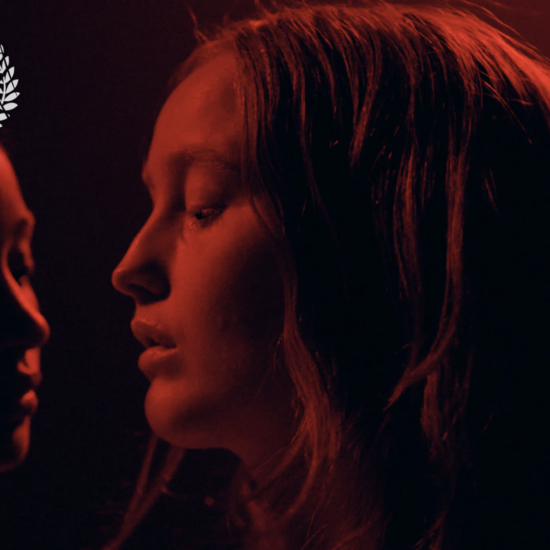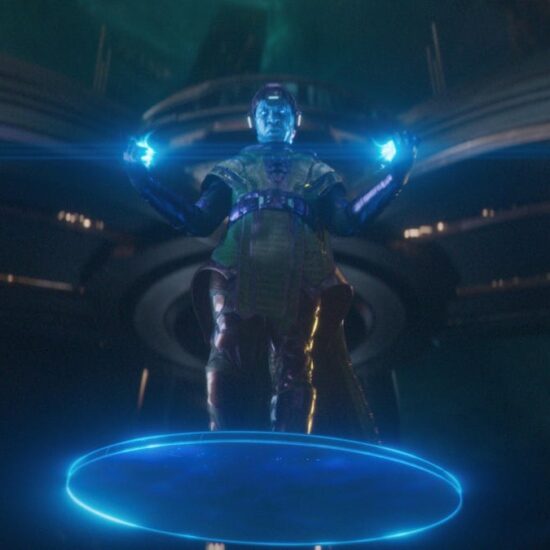
It’s no secret that women make up a large majority of the documentary world’s executive positions. Cara Mertes, director of the Ford Foundation’s JustFilms; Tabitha Jackson, director of the Sundance Institute Documentary Film Program; Diane Weyermann, executive vice president, documentary films at Participant Media; Molly Thompson, senior vice president of A&E IndieFilms; and Sheila Nevins, president of HBO Documentary Films are just of a few of the nonfiction genre’s gatekeepers.
But for most women, show business and almost all other career-oriented disciplines are uphill battles. But while that climb has become less difficult in documentary, it’s still a very tricky endeavor to reach the peak, which is why Dyllan McGee, executive producer at Kunhardt McGee Productions, founded Makers.
A multi-platform initiative developed by AOL that aims to be the largest collection of women trailblazer stories ever assembled, and includes a growing collection of over 250 original interviews online, Makers is about “bringing to life new and unforgettable stories, preserving those stories and letting every household in America have access to them.”
Makers.com launched in 2012 with the stories of 100 groundbreaking women. In 2013, Makers premiered the three-hour documentary Makers: Women Who Made America, telling the story of the modern American women’s movement for the first time on television. The film aired on PBS to 4.3 million viewers.
On September 30, a series of six new one-hour Makers documentaries is scheduled to premiere on PBS every Tuesday for six consecutive weeks. The hour-long specials will tell the stories of women in six spheres of influence: comedy, Hollywood, space, business, politics and war.
The Makers presentation at the Television Critics Associaiton Press Tour, left to right: Dyllan McGee, executive producer; screenwriter Linda Woolverton, from Women in Hollywood; for US Congresswomen Pat Schroeder,from Women in Politics; and filmmaker Ava DuVernay, from Women in Holllywood. Photo: Rahoul Ghose/PBS
“Makers is not just a media project, it’s a movement,” explains McGee, series executive producer. “The Geena Davis Institute on Gender in Media reports that since 1946, gender inequality on screen has remained largely unchanged and unchecked. Our goal at Makers is to help change that statistic.”
Nine years ago, McGee had no idea that she was going to build a multi-media empire. Back then, she just wanted to tell the story of Gloria Steinem, so she approached the feminist icon, only to get rejected. As McGee recalls, “In her egoless way, [Steinhem] said, ‘You can’t tell the story of the women’s movement through the story of one person. There’s a much bigger story to be told.'”
The rejection initially felt like a failure to McGee because she figured that the women’s movement was a story that had surely been told “a million times” in nonfiction form. She was wrong. Instead there were hundreds of important stories that had never hit the screen, let alone been taped. McGee did eventually make a film about Steinhem—Gloria: In Her Own Words, which aired on HBO in the summer of 2011 and earned an Emmy nomination. “Gloria inspired me to do more than just one film, and now I have made it my passion to capture and preserve the story of women both known and unknown,” McGee states.
In order to do that, McGee decided to flip the documentary model on its head by kicking things off online. She and her team posted individual stories on the Web, with the goal to then take the best material and create a documentary from the bottom up.
“When this project started almost 10 years ago now, video was just kicking off on the Web, and I knew it was going to change the documentary film medium,” McGee says. “The way people consume media now is more and more in short form, but I’m an old-fashioned documentary filmmaker in that I believe in the long form. That said, I think there is a place for both the long and short form. What was important for this project was to reach a young demographic that isn’t necessarily connected with the idea of how important it is for women to keep advancing.”
In order to reach that young demographic, McGee knew that she had to create something that was short-form. Makers.com launched two years ago, with the stories of 100 groundbreaking women including Hillary Clinton, Ruth Bader Ginsburg and Oprah Winfrey. Today the site features over 2,500 videos and more than 250 women, with new short films/interviews launching each week on “Makers Monday.”
When it came time for the latest documentary series, McGee said that it was “very hard to narrow it down to six one-hour episodes. The first documentary was about the women’s movement. Now we are looking at what’s been the ripple effect of the women’s movement. Where are we in each of these industries? At the end of the day, it’s about picking really good stories. Sometimes there’s a really interesting topic, but there are no stories in it.”
Each documentary examines the impact of the women’s movement on six fields once largely closed to women. Veteran documentary directors Heidi Ewing, Rachel Grady, Linda Goldstein Knowlton, Grace Lee and Jamila Wignot direct all but one of the films. Michael Epstein serves as the sole male director, while all six episodes are narrated by women, including Julia Roberts, Leslie Mann and Jodie Foster.
“Dyllan was very persistent and really courted Rachel and me,” says Ewing, who directed and produced Makers: Women in Comedy and Makers: Women in War with Grady. “Initially we were concerned with finding an original angle because, as a filmmaker, you want to have your own approach and make it as original as possible.”
When it came to Women in Comedy, Ewing explains that she wasn’t looking to grapple with gender inequality or for subjects to “gripe over and complain about lack of opportunity. We really just wanted to understand what it’s like to stand alone on that stage with a mic. It’s such a powerful position. All the women [we spoke to] had to confront that there is something very male about standing on stage and talking at people.”
Comedians including Chelsea Handler, Mo’Nique, Sarah Silverman, Ellen DeGeneres, Jane Lynch and Kathy Griffin participated in the documentary. But Ewing admits that Joan Rivers made her the most nervous. “None of these women suffer fools,” Ewing says. “So we really went into each interview prepared. But that said, I was still terrified to speak to Joan. Not only was it hard to get her to sit with us, but she’s a force to be reckoned with. When we finally sat down [to do the interview], the first thing I said was, ‘By the way, I’m not going to ask you about the [losing your friendship with] Johnny Carson episode.’ I think she appreciated that.”

Heidi Ewing (left) interviews Joan Rivers for Women in Comedy. Courtesy of PBS/MAKERS
Epstein, who directed Makers: Women in Space, appreciated being the sole male helmer on the project. “I see myself first and foremost as a storyteller, and the women’s movement is as much my story as an American as anybody else’s,” Epstein says. “It has had a profoundly positive influence on my life. So I never felt out of place as the only male director on the series. It was remarkably collaborative group of filmmakers.” That said, Epstein admits that Makers is “unequivocally Dyllan’s baby and vision,” which presents its own challenges. “You need to find your own voice inside what is so clearly someone else’s creation,” explains Epstein. “For me, it’s about finding the story, a story that excites me and one you think can be well told. I was able to find that with Dyllan. She gave me freedom to tell a story in my own voice.”

NASA astronaut Mae Jemison, who appears in Michael Epstein’s Women in Space. Courtesy of PBS/MAKERS
McGee foresees working with many more female as well as male directors on Makers. “The dream is that we can create an ongoing series,” McGee says. “My goal is to make sure that all women’s stories are told. So we have a long road ahead of us to make sure that that happens.”
Addie Morfoot writes about the entertainment industry for Daily Variety, The Wall Street Journal and Adweek. She has also written for The New York Times Magazine, the Los Angeles Times, and Marie Claire. She holds an MFA in creative writing from The New School.














